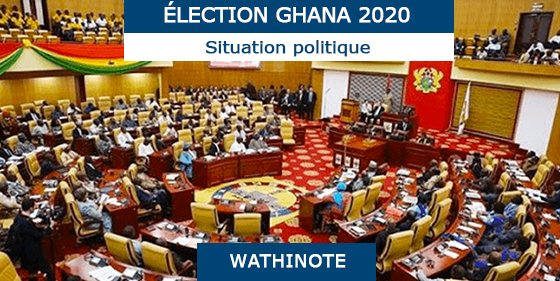

Authors : George M. Bob-Milliar and Jeffrey Paller
Publication Site : The Washington Post
Publication Type : Article
Date of publication : November 15, 2020
Link for the original document
Jerry John Rawlings, the leader of Ghana from 1981 to 2001, has died at age 73. Ghana’s president — and Rawlings’s longtime political opponent — Nana Addo Dankwa Akufo-Addo noted the former president’s impact on the nation: “A great tree has fallen, and Ghana is poorer for this loss.”
A towering figure in African politics, Rawlings leaves behind a complicated legacy. He was a strongman and a populist. But he carried a moral fervor to root out corruption and bring government closer to the ordinary Ghanaian. He led two coups in Ghana yet also won two multiparty elections — a political résumé that illustrates the tensions underlying Ghana’s democratic system.
Rawlings initially came to power in 1979 for a brief tenure, and then again in 1981 by the “barrel of the gun.” He then ushered in multiparty elections. More than any other figure since Ghana’s founding president, Kwame Nkrumah, Rawlings straddled the delicate balance between authoritarianism and democracy, decentralization and a strong presidency, and patronage and programmatic policies.
In 1999, Rawlings was the most popular and powerful man in Ghana, and had ruled the country for nearly two decades. After the Cold War, he begrudgingly adopted multiparty democracy, won two elections, then agreed in 2000 to step down from power. Many supporters explain this move approvingly, and the following phrase has become common in popular discourse: “He left us a multiparty democracy.”
Museveni in Uganda, Paul Kagame in Rwanda and Pierre Nkurunziza in Burundi changed term limits to stay in power. Their elections now more closely resemble political charades than free and fair elections representing the will of the people.
But that didn’t happen in Ghana. The opposition New Patriotic Party (NPP) won the 2000 election and ushered in a transfer of power from Rawlings’s National Democratic Congress (NDC). Thousands of Ghanaians who left the country during the Rawlings era returned home and reinvested in their homeland. The vibrant two-party system that had emerged in the 1940s struggle for independence returned. Since 2004, Ghana has had four successful, competitive elections and will vote again on Dec. 7.
Most Ghanaians have a story of seeing Rawlings in person. Some remember the time he got out of his car to direct traffic. Others recount when he visited the local neighborhood to clean gutters. Others tell stories of when he came in his military uniform and spoke to the young kids.
After a coup-filled and corruption-riddled 1960s and 1970s, when the economic elite, “big men” and traditional authorities ruled the country, Rawlings brought government to the people. Building off the legacy of Kwame Nkrumah — yet always distancing himself from the country’s founding president and his alleged corruption — Rawlings reintegrated grass-roots networks of market women, fishing communities, football fans, informal workers and other urban poor and working-class people into national politics.
Rawlings engaged in this kind of work even as a military government leader. After his second coup in 1981, he encouraged citizens to participate in governance through People’s Defense Committees. Rawlings established these committees to mobilize the masses to hold politicians accountable for their actions.
After he was elected democratically in 1992, he ushered through massive decentralization reforms. Under the Local Government Act of 1993, administration of public service provision moved from the national level to local-level assemblies.
But while decentralization and local governance efforts brought government closer to the people, it also magnified the winner-takes-all politics that came to dominate Ghana’s presidential and unitary system of government.
Northern Ghanaians credit Rawlings with “opening up the North,” and bringing electricity to the northern regions. Northerners remain incredibly loyal to the NDC because of Rawlings and the infrastructure projects he implemented. Subsequent leaders now make similar claims in other areas.
Counterintuitively, the NDC, the party that Rawlings founded, might be in the best position to move on without him. His presence has long loomed large in the party, playing a prominent role in campaigns and internal party politics.
But Rawlings had recently contributed to internal fractures in the NDC. Many party leaders grew tired of his public antics, but were mostly unable to criticize him for fear of alienating their voters. His passing opens up space for a younger generation of leaders, as well as increased institutionalization of Ghana’s two-party system.
Les Wathinotes sont des extraits de publications choisies par WATHI et conformes aux documents originaux. Les rapports utilisés pour l’élaboration des Wathinotes sont sélectionnés par WATHI compte tenu de leur pertinence par rapport au contexte du pays. Toutes les Wathinotes renvoient aux publications originales et intégrales qui ne sont pas hébergées par le site de WATHI, et sont destinées à promouvoir la lecture de ces documents, fruit du travail de recherche d’universitaires et d’experts.
